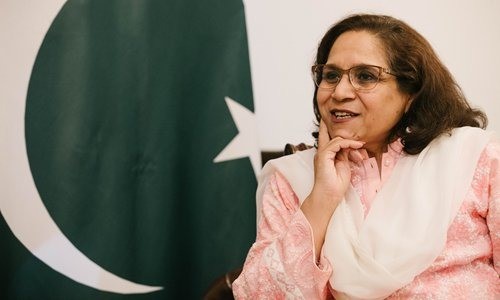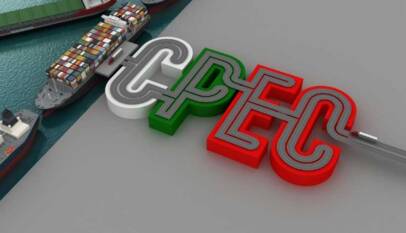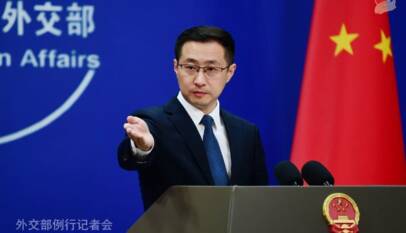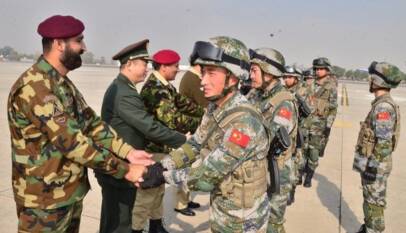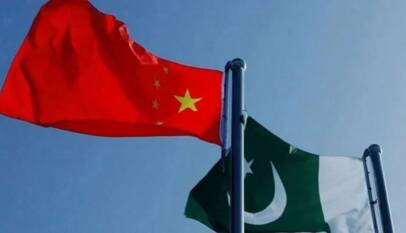Pakistan supports BRI’s future-oriented policy: Ambassador Naghamana Hashmi
Pakistan's Ambassador to Beijing, Naghamana Hashmi said in an interview that China-Pakistan bond is incomparable, and it is hard to find such manifestation. The warmth of their relationship is not felt at government level only but deeply felt by the people as well, she added. She credited the seven decades' efforts of both sides' leadership for this strong friendship. She observed that China and Pakistan are like family who adores each other. Ambassador Naghamana stated cultural exchanges between the two countries are not new rather they have a centuries-old history where Indian civilization and Chinese Civilization had close ties with each other. Ambassador said Pakistan is supporting Belt and Road Initiative because it is future-oriented, and Pakistan takes pride as the major partner of BRI under the CPEC framework. The second phase of CPEC which focused on building Special Economic Zones in the country will also increase to the per capita income in Pakistan as the accelerated economic activity will produce more jobs, she suggested.
BEIJING, Nov 22 (APP):Pakistan Ambassador to China, Naghmana Hashmi has said that Pakistan and China relations were unparalleled and the friendship was not only at the political level, but also at the people’s level.
“Pakistan-China relations are unparalleled. I really did not find a similar relationship with Pakistan-China relations in other bilateral relations,” she said in an interview with Beijing Youth Weekly published on Friday.
She remarked ” Friendship between Pakistan and China is not only at the political level, but also the people of Pakistan and China are condensed with each other’s hearts.”
She said: ” The Pakistan-China friendship was inseparable from the efforts of several generations of leaders of the two countries. The friendship between Pakistan and China is higher than the mountains and deeper than the sea.”
Ambassador Hashmi observed that “Now Pakistan-China friendship goes further as President Xi Jinping said the two countries are �iron brothers.’ Indeed, we are like a family that loves each other.”
The exchanges between the two countries were based on consensus and the two countries had a strong consensus on peace, development and prosperity.
She said” President Xi Jinping proposed common development and poverty eradication, and our leaders have the same view. Under the consensus, the two countries have cooperated in various fields including politics, economy, society and culture.”
“The two peoples are free to communicate and the people are free to move.
To say one more, the history of people’s exchanges can be traced back to the early days of human civilization. At that time, Chinese civilization and ancient Indian civilization in Pakistan had already been connected to each other,” she added.
About Belt and Road Initiative, she said it was both ancient and modern, and its concept was derived from the ancient Silk Road which was a reflection of China’s foreign exchanges.
“On the Silk Road, the people of all countries trade in goods and exchange ideas. The BRI is centered on the needs of the people, and countries along the line are committed to developing the economy and improving people’s lives”, he added.
Ambassador Hashmi said: “the BRI is future-oriented, so Pakistan supports it,” and added, “We are honored that we are the main partner of the BRI.” “In Pakistan, we call it the “China-Pakistan Economic Corridor” (CPEC).
Its scale and achievements have been hailed as the flagship of the “Belt and Road”, she added.
“At present, we are going to complete the construction of the first phase of CPEC, and the infrastructure construction projects including roads and electricity are nearing completion,” she said.
She said the circulation of goods and people required highways connecting China and Pakistan and Pakistan, and the development of the economy was guaranteed by sufficient energy supply.
The infrastructure construction will play an important role in economic development, she added.
“The achievements in the first phase have made us more confident in the second phase of construction,” she said.
Regarding the CPEC, she said it was about to enter the second phase of construction, which will be more worth looking forward to.
“The theme of the second phase is to build a corridor special economic zone. At that time, many Chinese investors will enter the special economic zone, which will further promote the economic development of the two countries”, she added.
After the establishment of the special economic zone, more people will find jobs there. Many Pakistani families will have a stable source of income, while China Entrepreneurs benefit from investment and achieve a win-win situation, she added.
She said the BRI was a commitment to the future and countries along the line will cooperate to achieve a win-win situation.
Responding to a question, she hailed Chinese efforts for environment protection and said the Pakistani government was also committed to protecting the environment.
During the election campaign, Prime Minister Imran Khan promised to lead the people to plant 1 billion trees for Pakistan. “Now, Pakistanis, whether they are older or younger, especially students, are all involved in tree planting.”
“I feel that there is often no contradiction between the development of the economy and environmental protection. People can find a balance so that both sides can support each other and develop better.”
Regarding cultural similarities between the two countries, she said like China, Pakistan was a diverse country. “Each of our provinces and regions has its own language, culture, and living habits, and even has its own characteristics in terms of food and clothing. At the same time, Pakistan as a whole has a culture of national identity”, she added.
Ambassador Hashmi said China and Pakistan were neighbours and the exchanges between the two sides had been continuous in history, especially the Silk Road had made these exchanges smoother.
“Because of the Silk Road, let us have more similarities to each other. For example, in terms of national character, for example, Chinese people are generous and willing to accept different cultures; Pakistanis are equally hospitable and willing to accept different cultures.”
Master Xuanzang of the Tang Dynasty came to Taksim to study Buddhism and brought the Buddhist scriptures back to China, allowing Buddhism to spread widely.
For example, in costumes, Chinese silk spread to Pakistan, and silk became an important part of Pakistani clothing culture. For example, on the diet, Chinese food comes to Pakistan, she added.
“Whether it is a small town or a big city, you can find Chinese restaurants because Pakistanis accept Chinese food. There are many examples of cultural exchanges between the two sides.
For example, in Pakistan, Chinese people introduce fashion clothes and fashion hairstyles to us; many young Pakistani people are learning Chinese”, she said”We are a Muslim-dominated country, but different religious beliefs live in harmony here. In the military, government departments and other places, Pakistanis with different religious beliefs and different nationalities enjoy the same rights.
This is also the resilience of Pakistan. Our people are peaceful, humble, and tolerant, and our country is more open”, she added.
To a question, she said : ” Pakistani women have a high social status. Pakistan is a country with a predominantly agricultural population. In the countryside, women and men work side by side to build the economic foundation of our country.”
“In the city, you will see female writers, female scientists, and female scholars. We have the largest group of female officials in the world, with women accounting for the majority of teachers and doctors,” she said.
“In the traditionally male occupation, we also saw women, such as female pilots, female truck drivers and so on. In modern life, women are also engaged in many new occupations, such as driving instructors and space technology engineers.”
“On the international stage, you will see many Pakistani female peacekeeping officials. We are also one of the first countries in the world to elect a female prime minister,” she said.
CPEC’s Success Story: $25 Billion Invested Across 38 Completed Projects
ISLAMABAD: A total of 38 projects worth over $25 billion have been completed and 23 develo…



